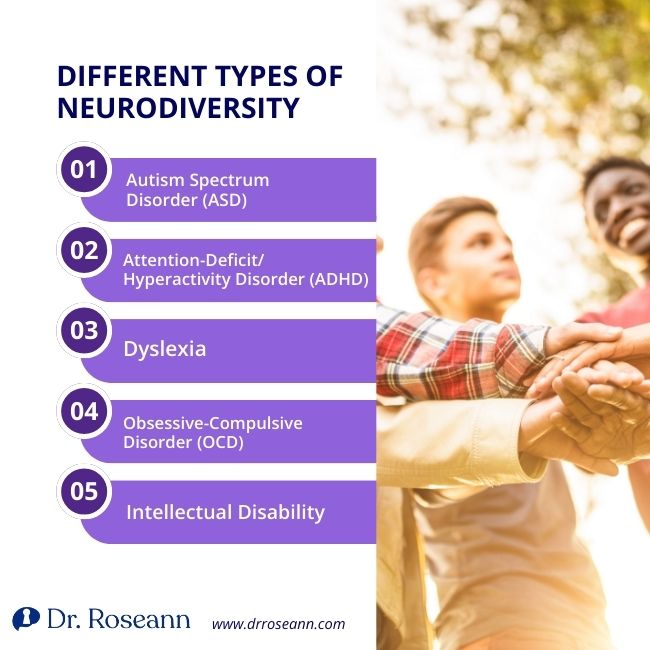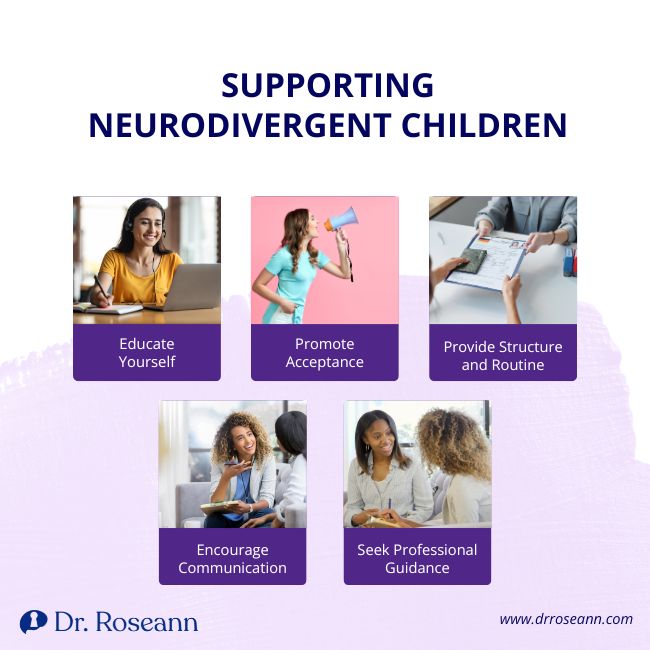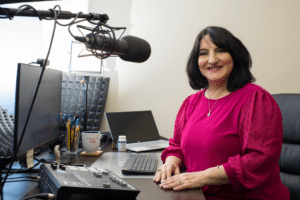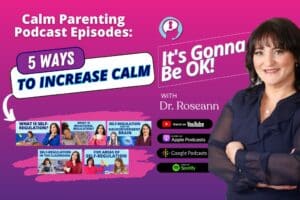In a world teeming with unique minds, the principle of neurodiversity offers a refreshing and inclusive perspective on the human condition. It posits that the myriad ways our brains operate are not just variations but are essential to the tapestry of human experience.
This view transforms our understanding of conditions like ADHD, autism, dyslexia, and more, from perceived deficits to differences that hold value and offer unique insights into how we interact with the world around us.
What Does Neurodivergent Mean?
Experts define neurodivergent people as those who may possess a spectrum of neurological differences that affect how they perceive the world, process information, and interact with others. Each neurodivergent person may experience unique strengths and challenges (Armstrong, 2012). It’s for this reason why it’s crucial for parents to recognize and appreciate their child's individuality.
But it’s also important to understand that neurodivergent disability does not define a person's worth or potential. Rather, it reflects a diverse range of cognitive abilities and perspectives. Embracing neurodiversity acknowledges the valuable contributions of neurodiverse individuals to society and promotes inclusivity and acceptance for all.
Different Types of Neurodiversity

Recognizing the different types of neurodivergent disorders is essential for fostering understanding and support within families and communities. Doing so helps us understand the neurological differences that present in diverse ways across the neurodiverse spectrum.
Autism Spectrum Disorder (ASD)
ASD is characterized by difficulties in social communication and interaction, as well as restricted and repetitive behaviors. Neurodivergents with ASD may excel in areas such as pattern recognition and attention to detail.
Attention-Deficit/Hyperactivity Disorder (ADHD)
ADHD involves challenges with attention, hyperactivity, and impulsivity. While some may perceive these traits as obstacles, neurodivergent individuals with ADHD often demonstrate creativity, energy, and a unique perspective on tasks and ideas.
Dyslexia
Dyslexia affects reading and language processing, but it doesn't reflect intelligence. Neurodivergent individuals with dyslexia may excel in problem-solving, creativity, and visual thinking.
Obsessive-Compulsive Disorder (OCD)
OCD involves intrusive thoughts and repetitive behaviors. While these tendencies can be distressing, neurodivergent individuals with OCD often exhibit exceptional attention to detail and organizational skills.
Intellectual Disability
This condition affects intellectual functioning and adaptive behavior. It's important to recognize the diverse abilities and potential of neurodivergent individuals with learning disabilities and provide appropriate support and accommodations.
Supporting Neurodivergent Children

Understanding and accepting neurodivergent traits in children is not only crucial for fostering their growth and well-being but also for promoting a more inclusive and supportive environment. Parents need to recognize that each child's journey is unique and that their neurodiverse condition does not define their potential or worth. To support their children effectively, parents can:
1. Educate Yourself
Learn about your child's neurodivergent condition to better understand their needs and strengths. Knowledge empowers parents to advocate effectively and access appropriate resources and support networks.
2. Promote Acceptance
Embrace your child's uniqueness and celebrate their strengths, recognizing that each individual's journey falls under the neurodivergent umbrella. Encourage a positive self-image by focusing on their achievements and talents rather than perceived limitations. Doing so will foster an environment of acceptance and empowerment for them.
3. Provide Structure and Routine
Establishing predictable routines and clear expectations can help neurodivergent children feel secure and thrive. Consistency and structure provide a sense of stability in their daily lives, which is especially beneficial for those navigating the complexities of being neurodivergent.
4. Encourage Communication
Create an open and supportive environment where your child feels comfortable expressing their thoughts, feelings, and challenges. Effective communication fosters trust and strengthens the parent-child bond (O’Brien & Mosco, 2011). Additionally, actively engaging with the neurodiversity community can offer invaluable support, resources, and understanding for both children and their families.
5. Seek Professional Guidance
Consult with healthcare professionals, therapists, or educators who specialize in supporting neurodivergent individuals. Collaborate with experts to develop personalized strategies and interventions tailored to your child's needs.
Navigating the journey of parenting a neurodivergent child can present unique challenges, but it also offers opportunities for growth, understanding, and celebration of diversity. By embracing neurodivergent traits and providing unconditional love and support, parents can empower their children to thrive and reach their full potential in a world that celebrates neurodiversity.
What is neurodivergent thinking?
Neurodivergent thinking refers to cognitive processes and perspectives that diverge from the typical norm. Some neurodivergent examples related to thinking include unconventional problem-solving approaches, creative ideation, and unique insights stemming from diverse cognitive styles.
What does it mean to be neurodivergent?
Being neurodivergent means having a brain that operates outside the box, making you a part of the neurodivergent community. Neurodiversity is defined by the presence of cognitive differences. Even individuals within the neurodiverse community may exhibit different types of neurodivergence.
What is a neurodivergent brain test?
A comparison of a neurotypical vs neurodivergent brain will show various types of cognitive differences, signifying the complexity of neurodivergency within individuals. Neurodivergent brain tests help analyze these differences and understand the unique patterns of cognitive functioning.
What is neurodiversity in the workplace?
Neurodiversity in the workplace refers to fostering an inclusive environment that values and accommodates diverse cognitive profiles. It involves recognizing and leveraging the strengths of individuals with neurodivergencies to enhance innovation, problem-solving, and team dynamics. By embracing neurodiverse examples, organizations can promote diversity, equity, and creativity for more effective and inclusive workplaces.
Is ADHD neurodivergent or neurotypical?
Yes, ADHD is considered nondivergent as they showcase their diversity within the neurodiversity spectrum. Examples of neurodiversity can be seen in the various manifestations of ADHD and highlights the complexity of cognitive functioning of hyperfocused, neurodivergent minds.
Is ADD neurodivergent?
Yes, ADD (Attention Deficit Disorder) falls under the umbrella of neurodivergence as it illustraties the breadth of neurodiversity in cognitive functioning. Neurodiversity examples can be observed in individuals with ADD and demonstrates the diverse ways in which neurodivergent brains operate.
Is Autism Neurodivergent?
Yes, autism is neurodivergent. Autism, also referred to as neurodivergent autism, falls under the different forms of neurodivergence. Individuals with autism have brains that operate differently from the typical norm, contributing to the diverse landscape of the neurodivergent spectrum.
What counts as neurodivergent?
Neurodivergence covers various forms of cognitive differences that deviate from the typical and constitutes a broad spectrum of neurodiverse conditions. Conditions such as autism, ADHD, dyslexia, and OCD are examples of neurodivergent conditions that fall within this spectrum. Each presents unique patterns of cognitive functioning and experiences.
What disorders are neurodivergent?
Examples from the neurodivergent disorders list include ASD, ADHD, dyslexia, OCD, and intellectual disabilities, among others. Essentially, a neurodivergent condition affects neurological functioning and falls within being non-neurotypical.
Is dyslexia neurodivergent?
Yes, dyslexia is considered neurodivergent. Individuals with neurodivergent dyslexia experience difficulties with reading, spelling, and language processing due to differences in neurological functioning. Dyslexia is one of the many examples of neurodivergent conditions that manifest in unique patterns of cognitive processing.
Is neurodivergent the same as autism?
While autism falls under the umbrella of the neurodivergent profile, neurodivergence is not synonymous with autism. Neurodivergence autism represents a specific neurotype within the broader spectrum of neurodivergence, characterized by a distinct neurodivergent profile that includes challenges with social communication, sensory processing, and repetitive behaviors.
How to tell if someone is neurodivergent?
Identifying neurodivergence involves recognizing patterns of behavior or cognitive traits that diverge from neurotypical traits. Observing characteristics such as atypical social interactions, sensory sensitivities, hyperfocus, or difficulties with executive functioning can indicate potential neurodivergent types of thinking.
Is neurodiversity a disability?
Neurodiversities are not inherently a disability. Instead, they cover a wide range of cognitive variations. While some individuals with symptoms of neurodivergent traits may experience challenges in certain areas, others may demonstrate exceptional abilities and talents. This reflects the diversity within the neurodivergent community.
What are neurodiverse conditions?
Neurodiverse conditions refer to a wide array of cognitive differences present within the human population. Understanding facts about neurodiversity entails recognizing the diverse range of conditions that contribute to a neurodiverse brain, including autism, ADHD, dyslexia, and OCD, among others.
What is the difference between neurodiverse and neurotypical?
The difference between neurodiverse and neurotypical individuals lies in their cognitive functioning and neurodivergent episodes. While neurotypical individuals exhibit typical patterns of cognitive processing, neurodivergent adults may experience episodes of atypical cognitive functioning due to conditions such as ADHD or autism.
Is dyslexia on the autism spectrum?
No, dyslexia is not on the autism spectrum. It is a specific learning disorder that affects reading and language processing. Dyslexia examples demonstrate challenges in decoding words and spelling, which are distinct from the social communication difficulties and repetitive behaviors associated with autism. Both dyslexia and autism involve neurological differences, but they are separate conditions with unique characteristics and diagnostic criteria.
Does depression make you neurodivergent?
Depression itself does not inherently make someone neurodivergent, as it is a mental health condition rather than a cognitive difference. However, some individuals with depression may exhibit traits or behaviors that align with neurodivergent characteristics, such as difficulty with executive functioning or emotional regulation. It's essential to differentiate between mental health conditions like depression and neurodiversity, which can be identified through personality tests and neurodiversity assessments.
What does neurospicy mean?
Neurospicy is not yet a recognized term within the field of neuroscience or psychology. However, neurospicy defines a spicy brain that is dynamic, intense, or particularly active in its cognitive processes, akin to a spicy flavor that stimulates the taste buds.
Citations
Armstrong, T. (2012). Neurodiversity in the Classroom: Strength-Based Strategies to Help Students with Special Needs Succeed in School and Life. Association For Supervision And Curriculum Development. North Beauregard Street, Alexandria, Va 1-. Tel: 800-933-; Tel: 703-578-; Fax: 703-575-; Web Site: http://www.ascd.org-12-00.
O’Brien, K., & Mosco, J. (2011). Positive Parent–Child Relationships. Positive Relationships, 91–107. https://doi.org/10.1007/978-94-007-2147-0_6
Dr. Roseann is a mental health expert in Neurodivergence who frequently is in the media:
- The Holistic Counseling Podcast Therapist's Integrative Tools: Neurofeedback and Biofeedback
- Life's Essential Ingredients Connecting at the Root
- Helping Children Thrive Podcast Benefits of Neurofeedback for children with ADHD
Always remember… “Calm Brain, Happy Family™”
Disclaimer: This article is not intended to give health advice and it is recommended to consult with a physician before beginning any new wellness regime. *The effectiveness of diagnosis and treatment vary by patient and condition. Dr. Roseann Capanna-Hodge, LLC does not guarantee certain results.
Are you looking for SOLUTIONS for your struggling child or teen?
Dr. Roseann and her team are all about science-backed solutions, so you are in the right place!
Grab your complimentary copy of
147 Therapist-Endorsed Self-Regulation Strategies for Children: A Practical Guide for Parents
Dr. Roseann is a Children’s Mental Health Expert and Licensed Therapist who has been featured in/on hundreds of media outlets including The Mel Robbins Show, CBS, NBC, PIX11 NYC, Today, FORBES, CNN, The New York Times, The Washington Post, Business Insider, Women’s Day, Healthline, CNET, Parade Magazine and PARENTS. FORBES called her, “A thought leader in children’s mental health.”

She coined the terms, “Re-entry panic syndrome” and “eco-anxiety” and is a frequent contributor to media on mental health.
Dr. Roseann Capanna-Hodge has three decades of experience in working with children, teens and their families with attention-deficit hyperactivity disorder (ADHD), autism, concussion, dyslexia and learning disability, anxiety, Obsessive Compulsive Disorder (OCD), depression and mood disorder, Lyme Disease, and PANS/PANDAS using science-backed natural mental health solutions such as supplements, magnesium, nutrition, QEEG Brain maps, neurofeedback, PEMF, psychotherapy and other non-medication approaches.
She is the author of three bestselling books, It’s Gonna Be OK!: Proven Ways to Improve Your Child's Mental Health, The Teletherapy Toolkit, and Brain Under Attack. Dr. Roseann is known for offering a message of hope through science-endorsed methods that promote a calm brain.
Her trademarked BrainBehaviorResetⓇ Program and It’s Gonna be OK!Ⓡ Podcast has been a cornerstone for thousands of parents facing mental health, behavioral or neurodevelopmental challenges.
She is the founder and director of The Global Institute of Children’s Mental Health, Neurotastic™Brain Formulas and Dr. Roseann Capanna-Hodge, LLC. Dr. Roseann is a Board Certified Neurofeedback (BCN) Practitioner, a Board Member of the Northeast Region Biofeedback Society (NRBS), Certified Integrative Mental Health Professional (CIMHP) and an Amen Clinic Certified Brain Health Coach. She is also a member of The International Lyme Disease and Associated Disease Society (ILADS), The American Psychological Association (APA), Anxiety and Depression Association of America (ADAA) National Association of School Psychologists (NASP), International OCD Foundation (IOCDF).
© Roseann-Capanna-Hodge, LLC 2024










